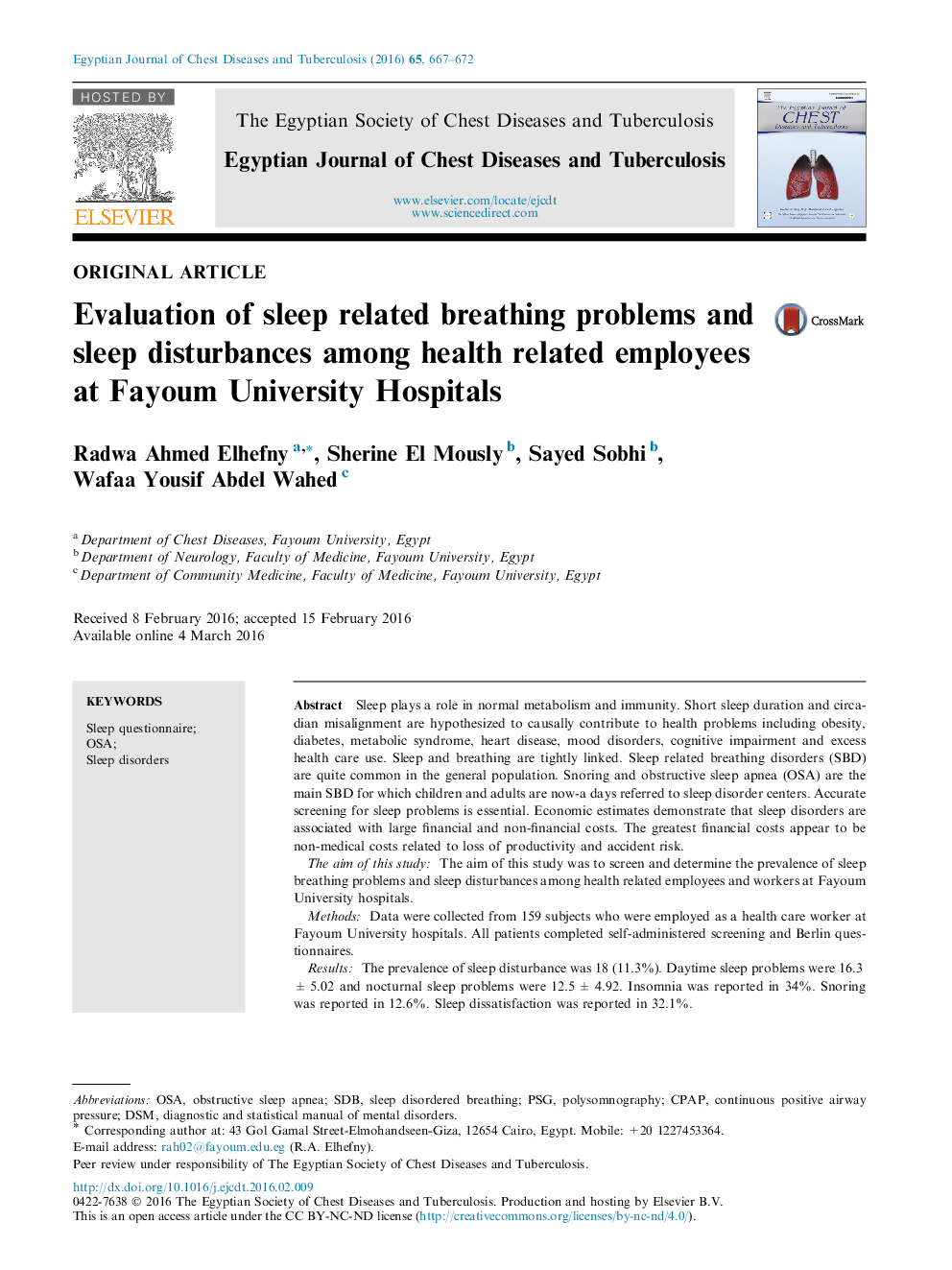| Article ID | Journal | Published Year | Pages | File Type |
|---|---|---|---|---|
| 3399830 | Egyptian Journal of Chest Diseases and Tuberculosis | 2016 | 6 Pages |
Sleep plays a role in normal metabolism and immunity. Short sleep duration and circadian misalignment are hypothesized to causally contribute to health problems including obesity, diabetes, metabolic syndrome, heart disease, mood disorders, cognitive impairment and excess health care use. Sleep and breathing are tightly linked. Sleep related breathing disorders (SBD) are quite common in the general population. Snoring and obstructive sleep apnea (OSA) are the main SBD for which children and adults are now-a days referred to sleep disorder centers. Accurate screening for sleep problems is essential. Economic estimates demonstrate that sleep disorders are associated with large financial and non-financial costs. The greatest financial costs appear to be non-medical costs related to loss of productivity and accident risk.The aim of this studyThe aim of this study was to screen and determine the prevalence of sleep breathing problems and sleep disturbances among health related employees and workers at Fayoum University hospitals.MethodsData were collected from 159 subjects who were employed as a health care worker at Fayoum University hospitals. All patients completed self-administered screening and Berlin questionnaires.ResultsThe prevalence of sleep disturbance was 18 (11.3%). Daytime sleep problems were 16.3 ± 5.02 and nocturnal sleep problems were 12.5 ± 4.92. Insomnia was reported in 34%. Snoring was reported in 12.6%. Sleep dissatisfaction was reported in 32.1%.ConclusionOur findings indicate that the daytime somnolence is common among health care workers followed by nocturnal sleep problems. Urbanization and large scale of industrialization can explain the incidence of sleep problems among rural living.
